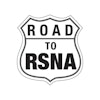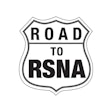Monday, December 1 | 1:30 p.m.-1:40 p.m. | M6-SSMK03-1 | Room E450A
Attendees in this session will find out how AI and language models can improve musculoskeletal (MSK) ultrasound workflows.
An AI-assisted draft reporting and checklist guidance improved efficiency, standardization, and education in a study among MSK sonographers, according to results to be presented by Daksh Mehta, MD, from Tata Memorial Hospital in Parel, Mumbai, India.
The researchers led a three-phase study to test the performance of the AI-assisted workflow. For phase I, they documented baseline challenges in MSK ultrasound reporting and training. In phase II, the researchers developed an open AI-assisted draft report generator. Phase III consisted of a three-month pilot study. Here, 12 radiology residents alternated between conventional and AI-assisted reporting weeks.
AI assistance led to a 31% reduction in reporting time over the conventional workflow (p < 0.01). It also led to more complete reporting compared with the baseline, from an average of 6.8 to 9.3 reports.
The researchers also used NASA-Task Load Index scoring in the study and reported that scores in cognitive workload decreased by 23%.
“Residents reported high usability and supported further integration across subspecialties,” the team noted in its abstract.
The researchers also listed the advantages of using large language models in this area. These include supporting voice-guided scanning assistance, refining clinician-specific reporting, providing differential generation, tracking residents’ skills, creating research datasets, and automating error detection.
What else does this workflow have going for it? Attend this session to find out more.


